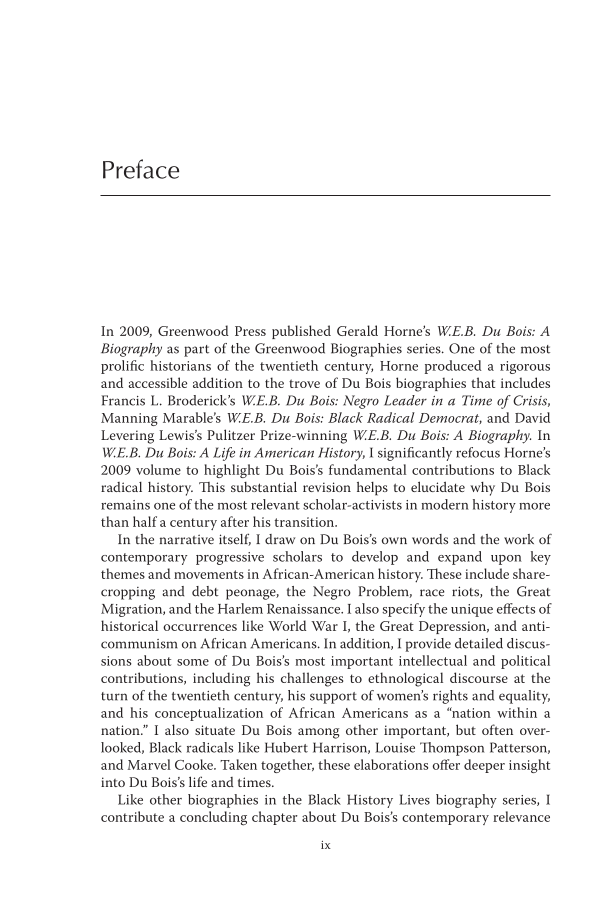ix Preface In 2009, Greenwood Press published Gerald Horne’s W.E.B. Du Bois: A Biography as part of the Greenwood Biographies series. One of the most prolific historians of the twentieth century, Horne produced a rigorous and accessible addition to the trove of Du Bois biographies that includes Francis L. Broderick’s W.E.B. Du Bois: Negro Leader in a Time of Crisis, Manning Marable’s W.E.B. Du Bois: Black Radical Democrat, and David Levering Lewis’s Pulitzer Prize-winning W.E.B. Du Bois: A Biography. In W.E.B. Du Bois: A Life in American History, I significantly refocus Horne’s 2009 volume to highlight Du Bois’s fundamental contributions to Black radical history. This substantial revision helps to elucidate why Du Bois remains one of the most relevant scholar-activists in modern history more than half a century after his transition. In the narrative itself, I draw on Du Bois’s own words and the work of contemporary progressive scholars to develop and expand upon key themes and movements in African-American history. These include share- cropping and debt peonage, the Negro Problem, race riots, the Great Migration, and the Harlem Renaissance. I also specify the unique effects of historical occurrences like World War I, the Great Depression, and anti- communism on African Americans. In addition, I provide detailed discus- sions about some of Du Bois’s most important intellectual and political contributions, including his challenges to ethnological discourse at the turn of the twentieth century, his support of women’s rights and equality, and his conceptualization of African Americans as a “nation within a nation.” I also situate Du Bois among other important, but often over- looked, Black radicals like Hubert Harrison, Louise Thompson Patterson, and Marvel Cooke. Taken together, these elaborations offer deeper insight into Du Bois’s life and times. Like other biographies in the Black History Lives biography series, I contribute a concluding chapter about Du Bois’s contemporary relevance
Document Details My Account Print multiple pages
Print
You have printed 0 times in the last 24 hours.
Your print count will reset on at .
You may print 0 more time(s) before then.
You may print a maximum of 0 pages at a time.














































































































































































































































































